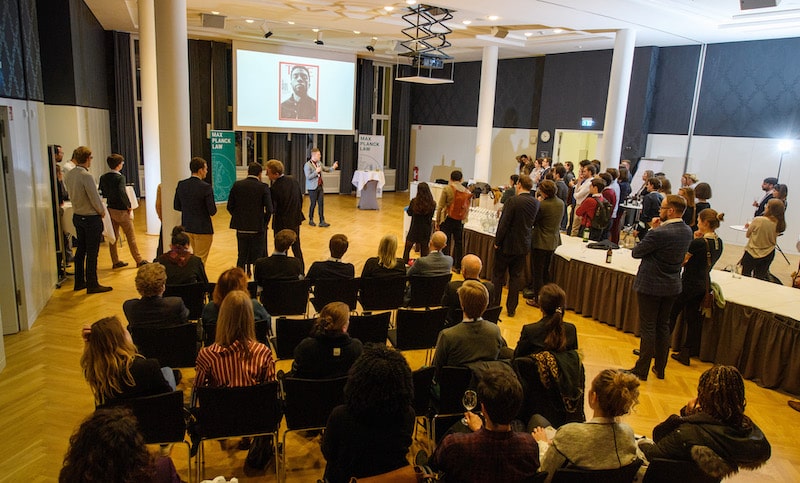After the long, solitary pandemic year, nearly 150 researchers across Max Planck Law and partner institutions were able to gather in-person last week for the third Max Planck Law Annual Conference. Running from 25–27 October 2021, the conference took place as usual at the Max Planck Society’s historic Harnack House in the Berlin suburb Dahlem.
For many of the attendees it was the first in-person academic meeting (nevertheless proceeding under strict COVID-19 health protocols) in over a year. At the same time, for most of the researchers, it was a first opportunity for personal engagement with Max Planck Law.
Max Planck Law is a network of ten Max Planck Institutes that focus on legal research. As a network, the aims of Max Planck Law are to promote greater cooperation and collaboration among the more than 400 Max Planck Law scholars while making the remarkable work of the Institutes more visible in the crowded and competitive global market for research and commentary on law and public policy.
The Max Planck Law Annual Conference is one of the mechanisms for advancing this agenda. During the programme, researchers learned about the activities and services across the network. Under the theme ‘Future Law’, the conference showcased research that grappled with cutting-edge issues from datafication and automation to neuroscience.
But no less important, the attendees had the opportunity to meet one another, to make productive personal and professional connections, and to deepen their shared sense of community and purpose across the ten participating Max Planck Institutes.
Especially lively discussions—and possible ongoing collaborations—were prompted by the keynote lecture delivered by Prof. Marietta Auer, the newly-appointed Director of the Max Planck Institute for Legal History and Legal Theory . In keeping with the theme, Prof. Auer used the case of private law, including an insightful survey of scholarship and practice in the last centuries, as a basis for suggesting what ‘Tomorrow’s Epistemology of Legal Science’ might be.
Four Max Planck Law Directors (Prof. Josef Drexl, Prof. Christoph Engel, Prof. Ralf Michaels, Prof. Anne Peters) grappled with the methodological challenges and opportunities facing ‘The Future of Foundational Legal Research’ in a roundtable discussion moderated by Prof. Anna-Bettina Kaiser (Humboldt University).
The programme also featured a panel of six scholarly presentations considering ‘The Future of Criminal Law’ while the future of law was made somewhat more tangible (or at least less culturally intangible) with an evening lecture from Prof. Mitchell Travis (University of Leeds) entitled ‘Justice, Jurisprudence and Science Fiction’.
Reinvigorated by the many new impulses and connections the conference made possible, Max Planck Law and the network of legal researchers it represents will continue their incisive work on the law of the past, the law of the present … and the law of the future.
